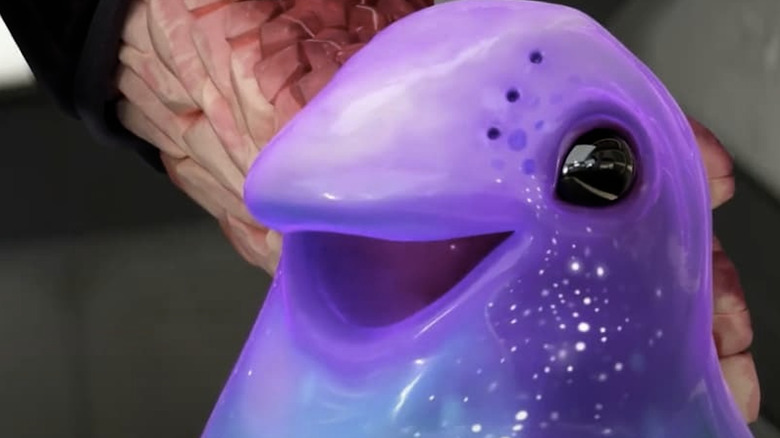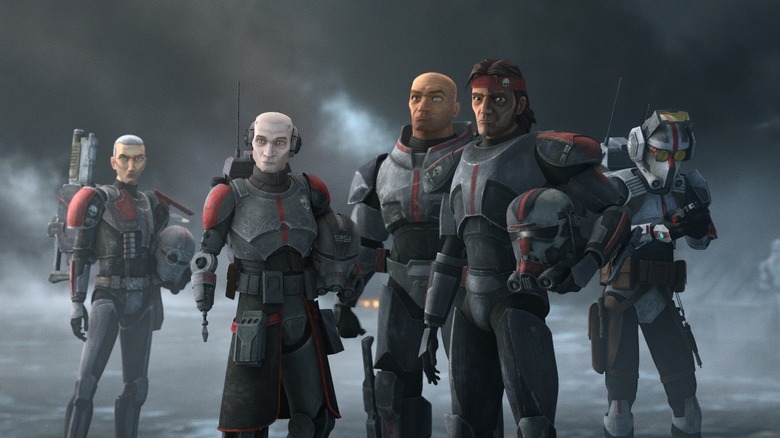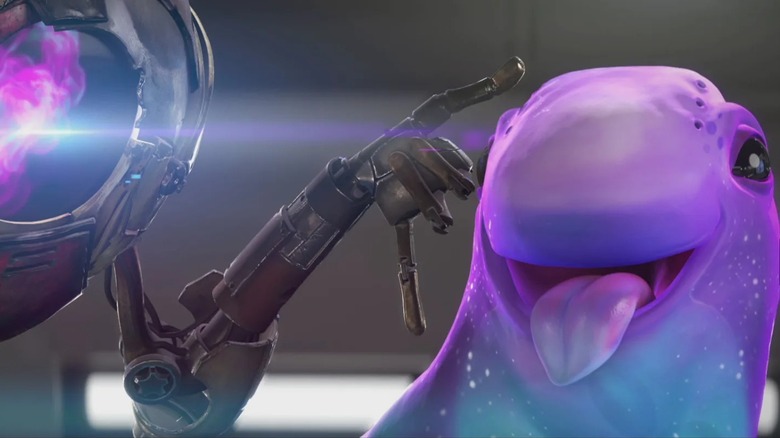Star Trek: Prodigy's Dee Bradley Baker On The Difference Between Star Trek And Star Wars [Exclusive]
Dee Bradley Baker is one of the lucky voice acting legends who's been blessed enough to work on two of the biggest pop culture juggernauts of them all: the galaxy far, far away of "Star Wars" and the optimistic futuristic universe of "Star Trek." He's most notably the voice of all the clone troopers and the Fetts in "Star Wars: The Clone Wars," as well as the lovable sentient blob Murph in "Star Trek: Prodigy."
Baker has a broad and vast array of voice acting credits, but he's mostly known for his vocalizations of different types of monsters and animals, which makes him a natural fit for these respective franchises. Outside of the many creatures and background characters he voices in the infinite "Star Wars" universe, the range of his talent is fully demonstrated in "Clone Wars" spinoff "The Bad Batch," in which he voices five different Clone characters who often bounce off of each other. His time voicing creatures helped him find the adorable voice of Murph in "Prodigy," though the show is more explicitly aimed at children compared to the animated "Star Wars" series, it's still loved and accepted by Trekkies.
This week, /Film's own "Star Trek" expert Witney Seibold spoke with Dee Bradley Baker and asked how the fandom of "Star Trek" and "Star Wars" differed in any notable way. Baker's answer was sophisticated and mature, stressing that "there's a different flavor to these mythologies."
Star Wars is about conflict, Star Trek is about unity
"Well, that's an interesting question. Is there a different tone or a different source of gravity for the enthusiasm of these two different mythologies?" Baker said, "To me, they're very related, because 'Star Trek' and 'Star Wars' are both space-oriented fantasies that are angled to an ultimately hopeful horizon. So there is that."
Though "Star Trek" is a decade older with its original '60s TV series, it didn't reach the big screen until 1979. The overwhelming success and popularity of the original "Star Wars" in 1977 paved the way for "Star Trek: The Motion Picture" to be made. Thanks to the ongoing release of the "Trek" movies and Lucas's "Star Wars" trilogy, they existed simultaneously in the public consciousness as dueling visions of space fiction.
But "Star Wars" and "Star Trek" could not be more philosophically different. "For me, 'Star Wars' is, ultimately, about resisting tyranny. And 'Star Trek' is about democracy trying to work." Baker explained, "And so it's like these two political polarities. I think they draw a different character of fan and I don't know how to describe that yet."
Though they both start with the word "Star," the second half of these titles sum up their fundamental differences well. "Star Wars" is a story of everlasting generational violence, while "Star Trek" is inherently concerned with discovery and empathy through diplomacy. It's certainly possible to enjoy both, but there's an inherent conflict at play, leading to two distinct fan bases.
Science-fiction versus science-fantasy
Baker continued:
"There's a different flavor to these mythologies. 'Star Trek,' it's really more science fiction and science-based. Some of it is very science-based. 'Star Wars' is not science — it's more human interaction and morality. And then facing off against this daunting tyranny that sets in when the Emperor Palpatine [executes] Order 66."
Even if the Empire casts a shadow over the galaxy in "Star Wars," it largely finds its adventure and emotional essence through the mold of a coming-of-age tale. It's defined by Luke Skywalker journeying outward from his small town to meet people of new perspectives and find his purpose in life. "Star Trek" shares more in common with a workplace procedural. The spirit of the franchise lies in a group of skilled individuals interrogating the philosophy of new technology in a world where humans have put their differences aside to advance as a species.
We've ultimately reached a place in pop culture where nerd fandom is so normalized that there's plenty of space for both "Star Wars" and "Star Trek." Baker shared he doesn't find there to be much friction between the two fandoms these days. "It's an interesting question. It's like, how are these fan bases different? I've never seen them not be accepting of each other or be rejecting of each other." Baker admits, "But yeah, there's probably a different character there at work."


